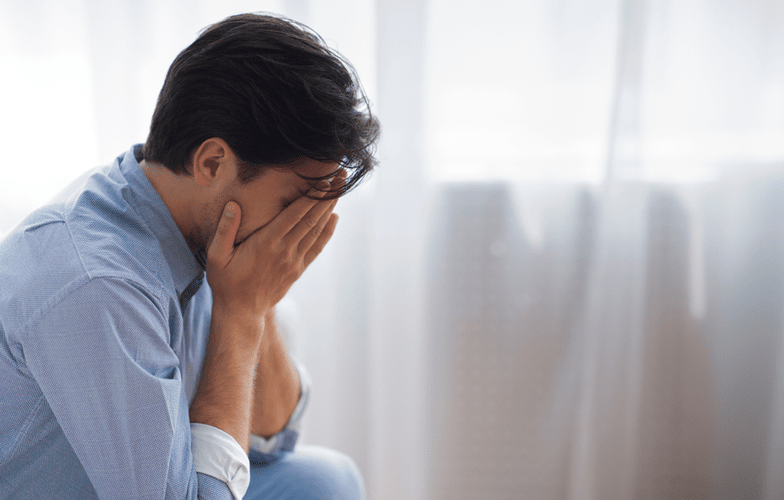A 2015 review of available preclinical and clinical data found that CBD had therapeutic properties in the treatment of cocaine, opioid, and psychostimulant addiction. Evidence also indicated that it might have benefits in the treatment of tobacco and cannabis addiction. If you’re dependent on cannabis, you could go through withdrawal for weeks or relapse after you quit. That’s why experts are studying how medicine can ease withdrawal symptoms like bad mood, anxiety, restlessness, and sleep issues.

All 50 states have laws legalizing CBD with varying degrees of restriction. In December 2015, the FDA eased the regulatory requirements to allow researchers to conduct CBD trials. In 2018, the Farm Bill made hemp legal in the United States, making it virtually impossible to keep CBD illegal – that would be like making oranges legal, but keeping orange juice illegal. When determining the appropriate dosage for CBD, consider factors like your weight, metabolism, and the specific health concern you’re addressing. It’s also important to choose high-quality CBD products from reputable sources and follow their recommended dosing guidelines. The cycle of addiction often leads individuals to prioritize obtaining and using the substance over other responsibilities or activities.
What Does of Cannabidiol Should You Take?
While researchers may not know everything about CBD yet, they have identified many key facts about this remarkable plant medicine. The literature search was conducted in two electronic databases, MEDLINE and PubMed. The search was restricted to English and French-language articles before 2015. Both the databases were independently searched by two reviewers (MP and RC), and the titles and abstracts were sorted followed by careful reading of the complete articles when relevant. A third researcher (DJA) was consulted in the event of discrepancies occurring between the results of the two reviewers.
In the same study, CBD improved psychological symptoms (depressive and psychotic-like traits) and cognition (attentional switching, verbal learning, and memory) in dependent cannabis users (Solowij et al., 2018). Emerging evidence indicates that TRPV1 inhibition may is cannabidiol addictive be effective in treating opioid addiction. Infusion of CPZ into the NAc attenuates morphine-induced CPP (Heng et al., 2014), tolerance, and withdrawal phenotypes in mice. Following this, TRPV1(−/−) mice do not respond to morphine reward (Nguyen et al., 2014).
What’s the evidence for low-dose CBD?
In this process, dopamine interacts with glutamate, another important neurotransmitter — creating associations in the brain between pleasurable feelings and activities that lead to them. However, the authors draw attention to the fact that most studies use a combination of THC and CBD. As a result, assessing the pain management benefits of CBD alone can be challenging. However, current research shows conflicting evidence, and researchers need to conduct additional high-quality controlled trials to verify these findings. The FDA cites clinical evidence suggesting people with Dravet and Lennox-Gastaut syndromes taking Epidiolex alongside other seizure medications had fewer seizures than those taking a placebo and other seizure medications.
- In the clinical setting, CBD (1 mg/kg) blocked the anxiety induced by THC (0.5 mg/kg) (Zuardi et al., 1982).
- While any CBD products sold in chemists in Australia will be subject to TGA regulations, oils and capsules bought online could contain anything.
- Currently, the FDA does not regulate the safety and purity of dietary supplements.
- Taking CBD at high dosages deactivates the P450 enzymes, altering how the body metabolizes many compounds, including THC.
In some people, tolerance can eventually lead to physical dependence and/or addiction. Because of the popularity of these drugs among teenagers, habits for taking these drugs develop early and prolong into the adult life. Starting with a detox program, people can begin to recover from addiction. If you feel you, your teen, or someone you love has an addiction to Cannabinoids or Cannabis, please contact a treatment provider today.
Other substances
In addition to mental health benefits, some research indicates that CBD might be helpful for reducing pain, relieving nausea, and treating inflammation. The World Health Organization also suggests that CBD may be helpful for treating conditions such as Alzheimer’s disease, arthritis, cardiovascular disease, and diabetes. While promising, more research is needed to understand how CBD might be utilized for the treatment of substance use disorders.

The functioning of your other systems and organs is largely dependent on endocannabinoid signaling. Preliminary evidence suggests that CBD may help treat substance use disorder. While chronic cannabis use may increase the risk of dependence, CBD alone does not appear to have the potential for addiction or abuse.
How we vet brands and products
According to the findings from preclinical and clinical studies, CBD alone or in combination with commonly employed treatment strategies in drug addiction may configure a potential therapeutic option for improving the dishabituation process of addicted patients. Therefore, the versatile pharmacological profile and safety of CBD support its therapeutic potential in the management of SUD. This review focuses on collecting all the available evidence about the effects of CBD on the different aspects that accompany drug dependence (reinforcement, motivation, contextual conditioning, relapse, withdrawal syndrome or motor sensitization).
